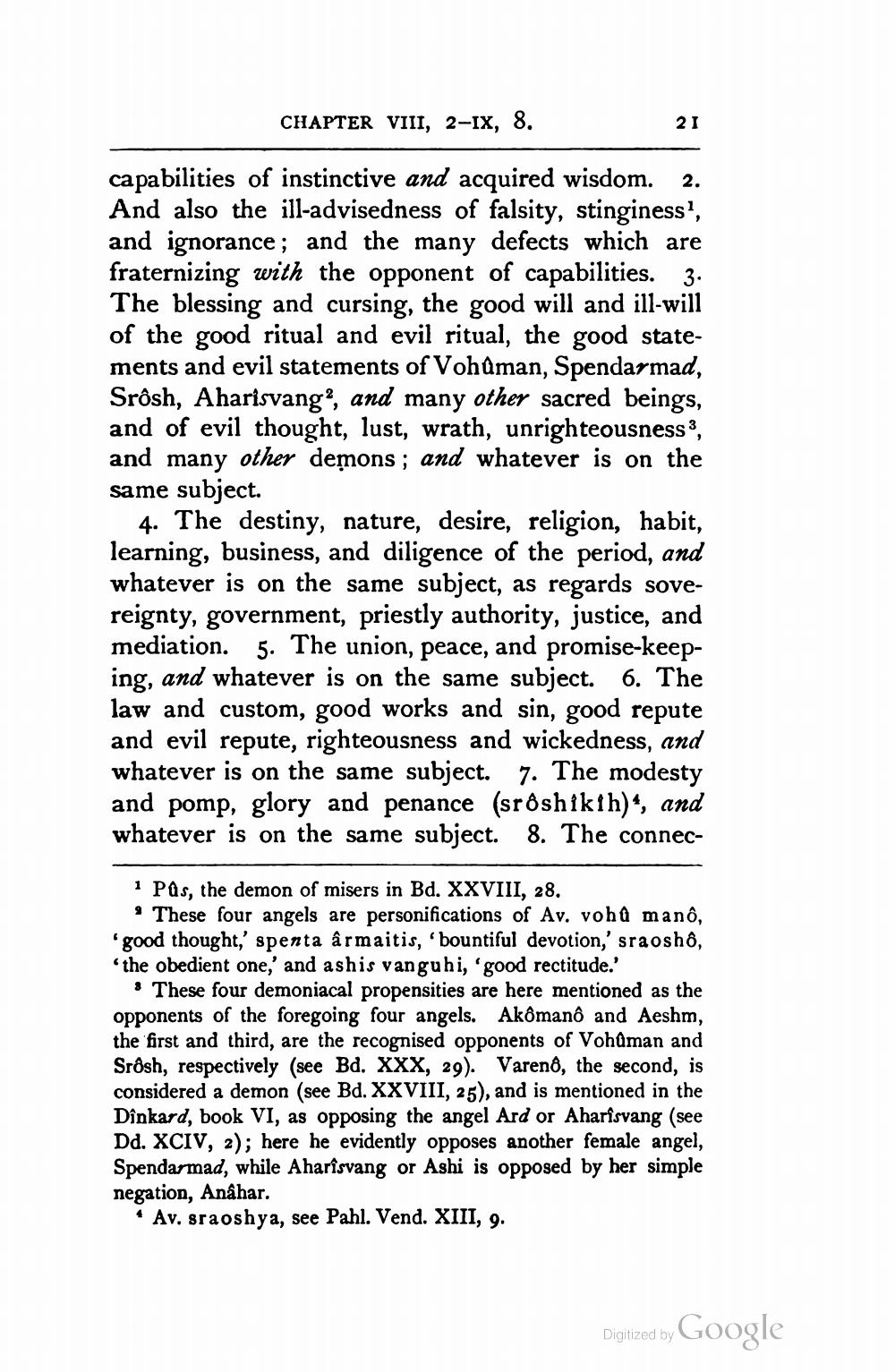________________
CHAPTER VIII, 2-IX, 8.
21
capabilities of instinctive and acquired wisdom. 2. And also the ill-advisedness of falsity, stinginess?, and ignorance; and the many defects which are fraternizing with the opponent of capabilities. 3. The blessing and cursing, the good will and ill-will of the good ritual and evil ritual, the good statements and evil statements of Vohůman, Spendarmad, Srôsh, Aharisvang?, and many other sacred beings, and of evil thought, lust, wrath, unrighteousness 3, and many other demons; and whatever is on the same subject.
4. The destiny, nature, desire, religion, habit, learning, business, and diligence of the period, and whatever is on the same subject, as regards sovereignty, government, priestly authority, justice, and mediation. 5. The union, peace, and promise-keeping, and whatever is on the same subject. 6. The law and custom, good works and sin, good repute and evil repute, righteousness and wickedness, and whatever is on the same subject. 7. The modesty and pomp, glory and penance (srôshikih)", and whatever is on the same subject. 8. The connec
1 Pas, the demon of misers in Bd. XXVIII, 28. . These four angels are personifications of Av. vohû mano, good thought,' spenta ârmaitis, 'bountiful devotion,' sraoshô, the obedient one,' and ashis vanguhi, 'good rectitude.'
These four demoniacal propensities are here mentioned as the opponents of the foregoing four angels. Akômano and Aeshm, the first and third, are the recognised opponents of Vohûman and Srôsh, respectively (see Bd. XXX, 29). Vareno, the second, is considered a demon (see Bd. XXVIII, 25), and is mentioned in the Dînkard, book VI, as opposing the angel Ard or Aharisvang (see Dd. XCIV, 2); here he evidently opposes another female angel, Spendarmad, while Aharîsvang or Ashi is opposed by her simple negation, Anahar.
* Av. sraoshya, see Pahl. Vend. XIII, 9.
Digitized by Google




